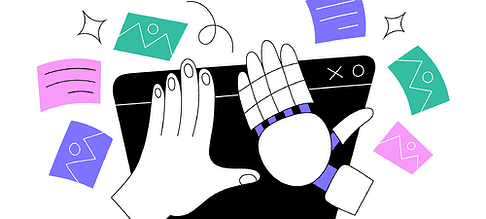Being neurodivergent in corporate America can be really tough. Many corporate jobs require professionals to respond to their employers twenty four hours a day seven days a week. This can be especially taxing for people with anxiety. Anxiety disorders are the most common form of mental illness amongst the U.S. population. But like neurodivergence, anxiety is not a monolith. There are several types of anxiety. It’s important to note that there are approximately six million Americans who have generalized anxiety disorder. It’s the most common type of anxiety seen in Americans. That’s why you’ve probably heard about it more than other forms of anxiety like panic disorder, climate anxiety, and social anxiety. Social anxiety can affect people in their personal and professional lives. Facets of corporate America like finance, corporate communications, and consulting all come with the expectation to be personable. And when someone has social anxiety, their silence or lack of enthusiasm may be interpreted as being rude, disinterested, or unprofessional. Some professionals with social anxiety dread being in crowded spaces. Others avoid work events because they feel like everyone in the room is staring at them. Many have never felt more alone than when they first stood in a room full of people. Despite all of this, social anxiety is rarely taken into consideration when it comes to someone’s work performance or their willingness to work with others. And before someone even gets the opportunity to engage with colleagues or go to work events they have to get the job first— and that involves being interviewed. If you have social anxiety and are job hunting, know that you are fully capable of excelling in interviews. Here are a few tips on how to ace your next interview when you have social anxiety.
Prepare With Your Therapist
This is one of the best ways to prepare for an interview when you have social anxiety. Discuss coping skills and techniques with your therapist. Create a solid plan for how to approach interviews. From learning how to respond when you get anxious during an interview to deciding whether you should take anxiety medication before, a mental health professional can help you become less anxious about interviews. Opening up to family and friends may be helpful, but they probably aren’t trained to assist people with social anxiety. You may hear people close to you diminish the severity of your social anxiety. They might say things like “you have plenty of experience, why are you anxious about an interview?” Don’t let their lack of understanding get to you. Social anxiety can feel debilitating but working with a therapist will help reduce your anxiety surrounding interviews.
Reduce Stress With Exercise
Exercise is a great way to blow off steam. If you don’t enjoy working out, do some research on different ways to exercise. Typical modes of exercise like walking and running can get boring fast. See if there are any work out classes or exercise groups near you. If being in large groups gives you anxiety don’t worry. You can always find a small yoga class or running group. And exercise doesn’t just reduce stress— it can boost your self-esteem. Getting in shape is a massive confidence booster. You may find that your anxiety around social events will lessen when you feel confident about how you look and feel. If you are on a tight budget there’s no need to go to expensive work out classes. Run in your neighborhood if you are physically able to run. Those with disabilities or injuries that affect their knees (but not their face, arms, or upper body) should try swimming. If you don’t have a pool head to a local community center to get your laps in. Exercise is always a good way to reduce stress.
Practice Breathing Techniques
Meditation is a powerful tool. I recommend that people with social anxiety do guided meditations prior to interviews. There are apps where you can find guided meditations, some of which include soothing sounds from nature. Remember that when you have an interview make sure to start the day off on a good note. Try journaling before and after the interview. See if your thoughts changed— about your social anxiety, about the interview, about yourself. Did you feel less or more anxious after the interview? What are some positive things that came out of the interview? These are all questions people with social anxiety should consider.
If meditation or journaling don’t make you feel less anxious than do some research on deep breathing exercises. Ask your therapist about breathing techniques they recommend for people with social anxiety. Find some way to become fully centered and calm before an interview. Talk to your therapist, exercise as much as you can, and ways to breathe that quiet your mind. Follow these suggestions and you’ll be sure to ace your next interview.













